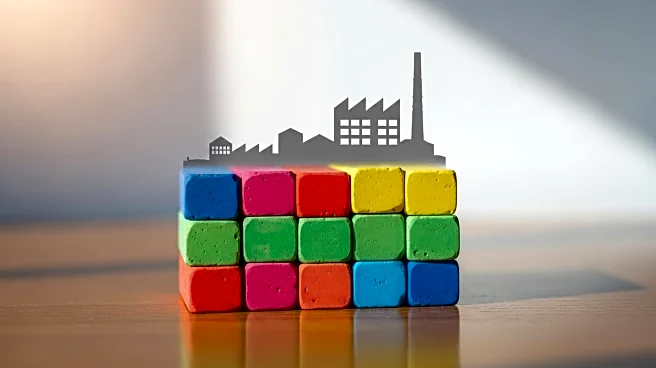What is the story about?
What's Happening?
DBL Ceramics has introduced 'TileChalk', a sustainability project that repurposes factory residue sludge into classroom chalk for underprivileged schools in Bangladesh. Traditionally, chalk was made from organic materials, but the rise of plastic-based whiteboards and markers has shifted the norm. Bangladesh, a major plastic polluter, benefits from this initiative by reducing waste and promoting eco-friendly education. DBL Ceramics, known for its sustainability efforts, identified a by-product sludge during its recycling process that could not be safely disposed of in landfills. After research and collaboration with chalk manufacturers, the sludge was refined into safe, durable, and affordable chalk sticks. The first batch of 10,000 TileChalk packets has been distributed to over 1,000 underserved schools. DBL Ceramics has made the TileChalk formula open source, inviting other manufacturers to adopt the practice.
Why It's Important?
This initiative is significant as it addresses both environmental and educational challenges in Bangladesh. By transforming industrial waste into a useful educational tool, DBL Ceramics is reducing landfill waste and promoting sustainable practices. The open-source nature of the TileChalk formula encourages industry-wide collaboration, potentially leading to broader adoption of eco-friendly manufacturing practices. This project not only supports underprivileged schools but also sets a precedent for other industries to innovate in waste management and sustainability. The initiative highlights the potential for businesses to contribute positively to environmental and social issues, fostering a culture of responsibility and innovation.
















